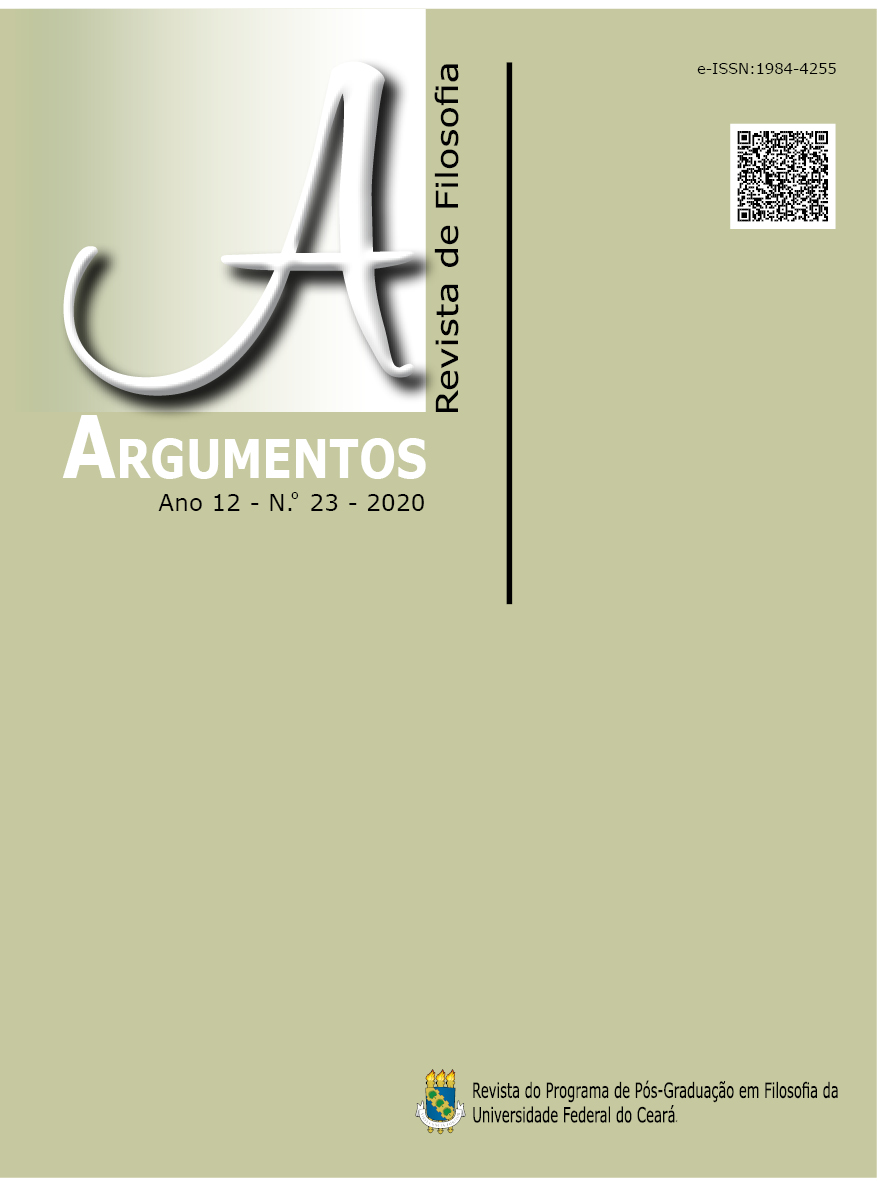Politics and science in Hannah Arendt
DOI:
https://doi.org/10.36517/Argumentos.23.6Keywords:
Theory of action. Scientific theory. Process theory. Public space.Abstract
We differentiate and problematize two types of discourses of the current world from the thought of Hannah Arendt, the scientific and the political. We analyze within his work from the application of the method of bibliographical research the conflict between politics and science. As a result of the research we present the relations between politics and science in Arendt in three guiding axes: the first deals with the pathos of the elimination of discourse and action by the scientific theories inheriting from the crisis of the modern world in which, politically, the problem of reducing the value of action in the public space for the resolution of human conflicts, in which there is a decrease in the recognition of the importance of discourse and presence in the common world, affects the destiny of communities; the second axis deals with the modern indistinction – theoretical and practical – between action and process, that is, between politics and science; the third axis seeks to clarify what, in fact, for Arendt, is the activity of action, which makes man a political being. Thus, we present the solution of irreversibility and unpredictability of action from the Arendtian point of view in order to clarify that scientific discourse is procedural and linked to fabrication while action is the foundation of Arendtian theory of action.
Downloads
References
AGUIAR, O. A. Condição humana e educação em Hannah Arendt. Educação e Filosofia, Uberlândia/MG, v. 22, n. 44, p. 23-42, jul./dez. 2008.
ARENDT, H. A condição humana. 10. ed. Rio de Janeiro: Forense Universitária, 2005.
ARENDT, H. A promessa da política. Rio de Janeiro: Difel, 2008.
ARENDT, H. Diario filosófico. 2.ed. Barcelona: Herder, 2006.
ARENDT, H. Entre o passado e o futuro. 3. ed. São Paulo: Perspectiva, 1992.
ARENDT, H. Origens do totalitarismo. São Paulo: Companhia das Letras, 2004.
BIGNOTTO, N. Das barricadas à vida privada. Nova Economia, Belo Horizonte/MG, v. 3, n. 16, p. 459-480, set./dez. 2006.
BIGNOTTO, N. Totalitarismo e liberdade no pensamento de Hannah Arendt. MORAES, Eduardo Jardim de; BIGNOTTO, Newton (Orgs.). Hannah Arendt: diálogos, reflexões, memórias. Belo Horizonte: Ed. UFMG, 2003, p. 166-175.
BOTELHO, A; BASTOS, E. R.; BÔAS, G. V. O moderno em questão: a década de 1950 no Brasil. Rio de Janeiro: Top Books, 2008.
CALLEGARO, R. Reflexões sobre a Educação no Pensamento de Hannah Arendt. Encontro de Pesquisa na graduação de Filosofia – UNESP, São Paulo/SP, v.1, n. 2, p. 88-100, 2009.
COELHO, J. C. da C. As raízes terrenas do perdão em Hannah Arendt. Covilhã: LusoSofia, 2011.
DUMEZ, H. Essai sur la théorie de l'action de Hannah Arendt dans ses implications pour la recherche en science sociale. Le Libellio d'Aegis, Paris, v. 3, n. 2, p.10-24, 2006.
KOHN, J. Introdução à edição americana. In: ARENDT, Hannah. Responsabilidade e julgamento. São Paulo: Companhia das Letras, 2004, p. 7-30.
PONTES, A. L. Modernidade como crise: a ação em Hannah Arendt e Max Weber. Intersecções, Rio de Janeiro/RJ, v. 14, n. 1, p. 105-119, jun. 2012.
SCHIO, S. M. Hannah Arendt: história e liberdade (da ação à reflexão). Caxias do Sul: EDUCS, 2006.
WEIGEL, S.; KYBURZ, M. Secularization and Sacralization, Normalization and Rupture: Kristeva and Arendt on Forgiveness. Modern Language Association, Nova York, v. 117, n. 2, p. 320-323, mar. 2002.
Downloads
Published
Versions
- 2025-03-28 (2)
- 2020-04-19 (1)
How to Cite
Issue
Section
License
Copyright (c) 2020 Argumentos - Revista de Filosofia

This work is licensed under a Creative Commons Attribution 4.0 International License.
Argumentos magazine is licensed under an International Creative Commons Attribution License.
The Magazine uses CC BY inclusion
1) The authors retain the copyright granted to the magazine or the right to initial publication, with the work regularly licensed under the Creative Commons Attribution, which allows the sharing of the work with acknowledgment of authorship and initial publication in this magazine.
2) The authors are authorized to contract additional applicable contracts, for non-exclusive distribution of the version of the work published in this journal (for example, publication in the institutional repository or as a chapter of the book), recognition of authorship and initial publication in this journal.
3) Authors are authorized and encourage to publish and distribute their work online (for example, in institutional repositories or on their personal pages) at any time before or during the editorial process, as they can generate productive changes, as well as increase the impact and reference of published work.




.jpg)










._._3.png)
1.jpg)
._._._.png)
